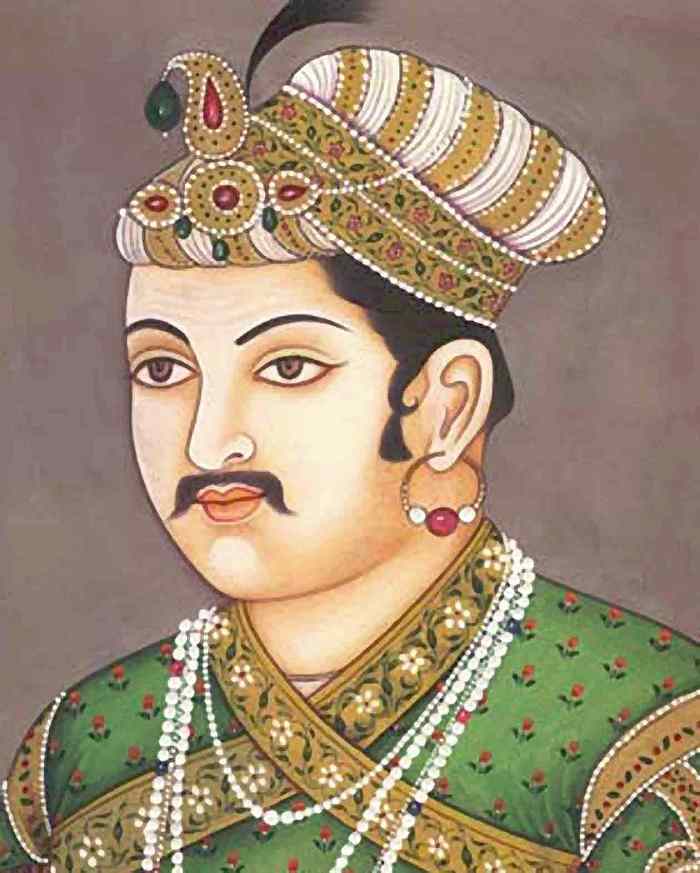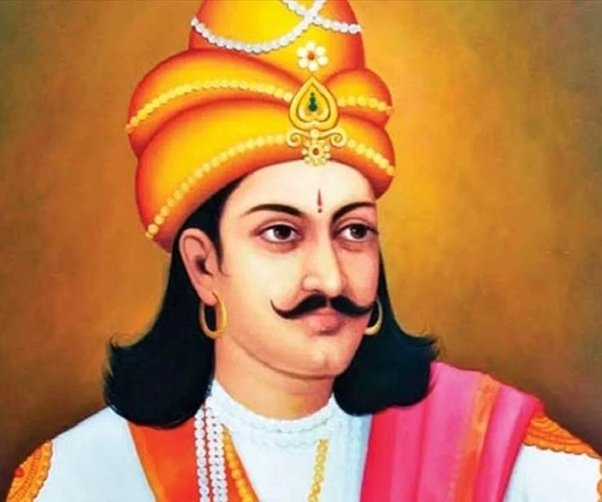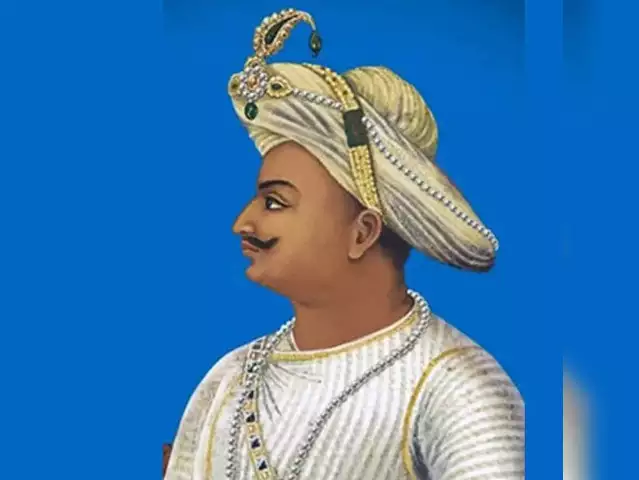In the vibrant canvas of India’s fascinating past, some kings really made a splash as influential leaders. They weren’t simply rulers; these were forward-looking visionaries who left a profound impact on the subcontinent. Top 10 Powerful Kings in India. Powerful Kings in India.
Join us on a journey through the pages of history, where we uncover the stories and enduring impacts of the top 10 influential kings who played a vital role in shaping the narrative of India.
Here are the Top 10 Powerful Kings in India
Table of Contents
Ashoka the Great:

_image source: medium.com
Ashoka the Great, a pivotal Mauryan emperor, underwent a profound transformation from a ruthless conqueror to a champion of peace. His reign, spanning from 268 to 232 BCE, was characterized by the Kalinga War, a brutal conflict that deeply affected him.
Stricken by remorse for the immense suffering, Ashoka embraced Buddhism, adopting its principles of non-violence and compassion.
His edicts, inscribed on rocks and pillars throughout the empire, conveyed his commitment to social welfare, religious tolerance, and ethical governance. Ashoka’s legacy endures as a beacon of moral leadership, emphasizing the transformative power of empathy and enlightenment.
Shivaji Maharaj:

_image source: medium.com
Shivaji Maharaj, the visionary founder of the Maratha Empire (1674–1680), transcended the conventional role of a ruler. A strategic military genius, he pioneered guerrilla warfare tactics and established a sovereign Maratha state against the mighty Mughals. Shivaji’s governance was marked by innovative military administration and a deep commitment to justice.
His coronation in 1674, adopting the title “Chhatrapati,” symbolized a declaration of independence. Shivaji’s legacy extends beyond military triumphs; he laid the foundation for a progressive and inclusive administration, emphasizing the welfare of his people. His enduring influence earned him the title of “Father of the Indian Navy.”
Akbar:

_image source: culturalindia.net
Akbar, the illustrious Mughal emperor (1556–1605), transcended the norms of his time. Renowned for religious tolerance, he fostered an inclusive atmosphere, promoting dialogue among diverse cultures and faiths.
Akbar’s reign witnessed the flourishing of art, literature, and architecture, exemplified by the creation of the Fatehpur Sikri complex. His administrative acumen introduced innovative policies, including a centralized system and a fair revenue system.
Akbar’s legacy lies not only in his military conquests but also in his pursuit of harmony and progress, making him a pivotal figure in India’s cultural and political history.
Chandragupta Maurya:

_image source: quora.com
Chandragupta Maurya, the architect of the Mauryan Empire (322–298 BCE), made an enduring impact on ancient India. Renowned for his shrewd political maneuvers, he successfully toppled the Nanda dynasty, laying the foundation for one of the continent’s largest empires. Chandragupta’s rule was marked by a well-structured bureaucracy and an effective administrative system.
Teaming up with Chanakya, the esteemed political theorist, proved instrumental in Chandragupta’s ascent to power. By uniting northern India, he not only established a model for upcoming dynasties but also significantly molded the political terrain, creating a lasting imprint on the unfolding story of Indian history.
Rana Sanga:

_image source: thefamouspeople.com
Rana Sanga, a stalwart Rajput king in the early 16th century, emerged as a symbol of unwavering resistance against external invasions. Leading the Rajputana Confederacy, he confronted the expanding forces of Babur at the Battle of Khanwa in 1527.
Despite facing adversity, Rana Sanga showcased exceptional valor and military prowess. His commitment to defending Rajput territories and preserving cultural integrity solidified his legacy as a heroic figure. Rana Sanga’s tenacity in the face of challenges and his enduring influence on Rajput history make him a revered icon in the tapestry of India’s medieval period.
Krishnadevaraya:

_image source : indiaonline.in
Krishnadevaraya, the illustrious Vijayanagara emperor (1509–1529), stands as a beacon of cultural and political brilliance in South Indian history. His rule marked a golden era of artistic and literary flourishing, with the Telugu language experiencing a renaissance under his patronage.
Krishnadevaraya’s diplomatic prowess and military achievements expanded the Vijayanagara Empire’s influence. The construction of the iconic Vijaya Vittala Temple and his support for scholars like Tenali Rama underscored his commitment to the arts.
Krishnadevaraya’s reign is remembered as a time of prosperity and cultural renaissance, leaving an indelible mark on the heritage of the Vijayanagara Kingdom.
Harsha:

_image source: culturalindia.net
Harsha, a 7th-century ruler of Northern India, is celebrated for his benevolent reign that left an enduring impact on the subcontinent. Ascending the throne of Thanesar after a series of conflicts, Harsha endeavored to unify North India.
A patron of Buddhism, he organized grand assemblies like the famed Prayag Assembly, promoting religious tolerance. Harsha’s commitment to social welfare, documented in the Chinese traveler Xuanzang’s records, showcased his emphasis on governance for the people.
Though short-lived, Harsha’s reign is remembered as a period of relative peace and prosperity, contributing to the cultural and historical mosaic of ancient India.
Tipu Sultan:

_image source : economictimes.indiatimes.com
Tipu Sultan, the valiant ruler of Mysore (1782–1799), earned the moniker “Tiger of Mysore” for his fierce resistance against British colonial expansion in India. Known for his military innovation, Tipu employed advanced rockets in warfare, earning recognition as the “Father of Rocketry.
” His steadfast opposition to British imperialism, evident in the Anglo-Mysore Wars, left an indelible mark on Indian history. Tipu’s efforts to build a self-reliant kingdom, economic reforms, and his vision for technological progress make him a symbol of resistance and resilience against foreign aggression in the late 18th century.
Raja Raja Chola:

_image source : podtail.com
Raja Raja Chola, a 10th-century monarch of the Chola dynasty, stands as an architectural and naval visionary in Indian history. Renowned for constructing the iconic Brihadeeswarar Temple in Thanjavur, he showcased unmatched architectural grandeur and engineering sophistication. Raja Raja Chola’s naval expeditions extended Chola’s influence across Southeast Asia, marking a zenith in maritime power.
His reign witnessed economic prosperity, cultural richness, and advancements in trade. Raja Raja Chola’s contributions to art, religion, and naval prowess solidified his place among the great rulers of ancient India, leaving an indelible imprint on the Chola Empire’s golden era.
Prithviraj Chauhan:

_image source: civilsdaily.com
Prithviraj Chauhan, the last Hindu ruler of Delhi in the 12th century, embodies the spirit of valor and chivalry. Famed for his military prowess, he faced numerous challenges, notably against Muhammad Ghori. The Battles of Tarain showcased Prithviraj’s strategic brilliance, though the eventual defeat marked a shift in Northern India’s political landscape.
Revered in folklore for his adherence to dharma (righteousness), Prithviraj symbolizes the resilience of Hindu rulers during a period of external pressures. His legacy echoes through epic poems and ballads, immortalizing him as a heroic figure in the tapestry of medieval Indian history.
Faqs:
Who was the most powerful king in India?
- Ashoka The Great.
Which dynasty ruled the longest in India?
- The Chola dynasty.
Which king was never defeated in India?
- Narasimhavarman I
Who was the bravest king of India?
- Chhatrapati Shivaji Maharaj.
Who are the 5 famous kings of India?
- Maharaja Porus,
- Chandragupta Maurya,
- Ashoka the Great,
- Chhatrapati Shivaji Maharaj, and
- Maharana Pratap.
Who was the smartest king in history?
- Alexander the Great.
Which king killed his father in India?
- Bimbisara.
Who ruled India in the 1st century?
- Kushan Empire.
Conclusion:
- As we traverse through the narratives of these powerful kings, their stories intertwine with the fabric of India’s past, shaping its present and influencing its future. Each ruler, with unique strengths and flaws, played a pivotal role in the grand tapestry of India’s historical narrative.
see also: Top 10 Freedom Fighters of India

